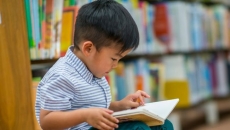New Delhi, Sep 5 (IANSlife) Parenting styles have a significant impact on a child's development, behaviour, and general well-being. The controlled parenting environment, often known as authoritarian parenting, is one of the parenting styles. In this parenting style, parents have extensive influence over their children's activities, actions, and choices.
Dr Paula Goel, pediatrician, and adolescent specialist, at Fayth Clinic shares with IANSlife its characteristics and potential impacts on a controlled parenting environment:
Strict Rules and Regulations: In a controlled parenting environment, parents establish strict rules and regulations that govern the child's behaviour, schedule, and activities. These rules are often non-negotiable and strictly enforced.
High Expectations: Controlled parents set high expectations for their children in academics, extracurricular activities, and social interactions. These expectations may sometimes be unrealistic, leading to undue pressure on the child.
Limited Autonomy: Children growing up in such an environment are given limited opportunities to make their own decisions. Parents often make choices on behalf of their children, leaving them with less autonomy to explore and learn from their experiences.
Supervision and Monitoring: Controlled parents closely monitor their child's activities, both online and offline. They may limit access to certain media, friends, or activities deemed inappropriate.
Punitive Discipline: Consequences for breaking rules or not meeting expectations in a controlled parenting environment are often punitive in nature. This may include loss of privileges, grounding, or withholding affection.
Emphasis on Obedience: Obedience is highly valued in this parenting style, and children are expected to comply without questioning authority.
Anxiety and Stress: Children raised in a controlled parenting environment may experience heightened levels of anxiety and stress due to the pressure to meet high expectations and fear of punishment.
Low Self-Esteem: Constant scrutiny and lack of autonomy can lead to low self-esteem and a sense of inadequacy in children.
Rebellion or Withdrawal: Some children may rebel against strict rules and parental control, while others may withdraw emotionally to cope with the pressure.
Lack of Decision-Making Skills: Limited opportunities to make decisions on their own can hinder the development of crucial decision-making and problem-solving skills.
Difficulty in Expressing Emotions: Children in controlled environments may find it challenging to express their emotions openly, fearing judgment or punishment.
Social Challenges: The lack of freedom and autonomy may hinder a child's social development and ability to form independent relationships with peers.
"While controlled parenting may arise from good intentions, it is crucial to consider the potential impacts it may have on a child's emotional, social, and cognitive development. A balanced approach to parenting that combines reasonable rules with fostering autonomy, communication, and empathy is always encouraged. As parents it is necessary to have open channels of communication, positive reinforcement, and allowing children to learn from their experiences – all this can nurture healthy growth and development, fostering a strong foundation for a bright future. As caregivers, it is essential to remain attentive to our children's needs and ensure their emotional well-being while guiding them toward becoming confident and independent individuals", concludes Dr. Paula Goel.






